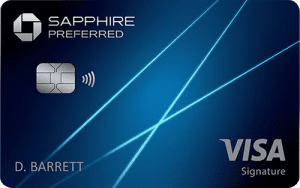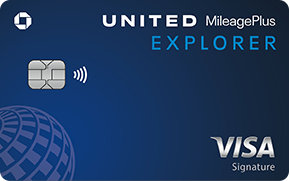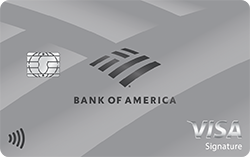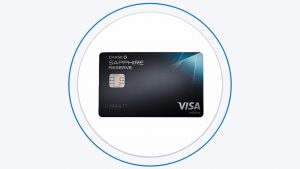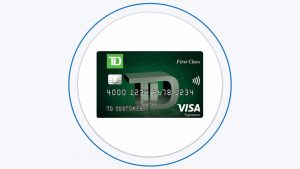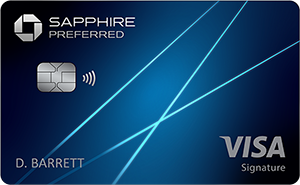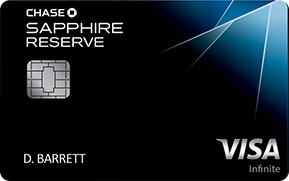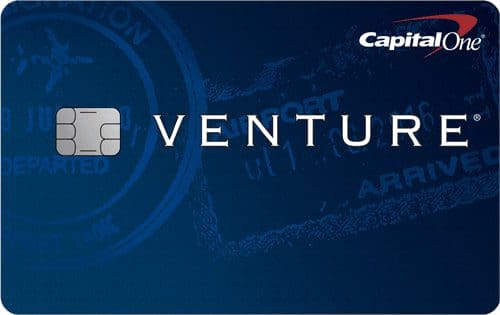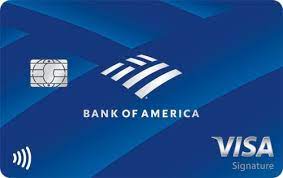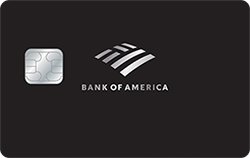Whether you’re heading on vacation or traveling for business, it can be disruptive to be away from home. While traveling can be exciting and interesting, being in an unfamiliar place can cause issues if you have a problem. Travel insurance is designed to provide reassurance for these circumstances.
As with other types of insurance such as auto or home insurance, travel insurance is specifically designed to cover the various areas related to being away from home. This can vary from lost luggage to needing to cancel your trip.
Many credit cards offer basic travel insurance as part of the benefits, but few offer even more. Here are they:
Chase Sapphire Reserve®
Reward details
Current Offer
Credit Rating
Annual Fee
0% Intro
APR
- Overview
- Travel Insurance Coverage
The Sapphire Reserve is Chase’s premium travel card, so it does carry a premium annual fee. However, this should be easily offset by the perks if you’re a regular or frequent traveler. The card has a tiered reward structure weighted towards Chase Ultimate Rewards purchases, with up to 10 points per dollar spent available.
The card benefits include the travel insurance detailed above, reimbursement for NEXUS, TSA PreCheck or Global Entry application fee, up to $300 in statement credit for travel purchases per anniversary year and complimentary airport lounge access via Priority Pass Select.
Frequent travelers are also likely to appreciate that you can get 50% more point redemption value when you redeem for travel via Chase Ultimate Rewards.
| Travel accident insurance | Up to $1,000,000 |
| Trip cancellation/interruption | Up to $10k per person and $20k per trip, maximum of $40k per 12 month period |
| Trip delay reimbursement | Up to $500 per ticket if you’re delayed for over six hours |
| Lost or damaged baggage | Up to $3,000 per passenger |
| Rental car | Up to $75,000 |

Chase Sapphire Preferred® Card
Reward details
Current Offer
Credit Rating
Annual Fee
0% Intro
APR
- Overview
- Travel Insurance Coverage
The Chase Sapphire Preferred is a popular travel rewards credit card with a tiered reward structure weighted towards Chase Ultimate Rewards Travel.
The card has a modest annual fee and in addition to its travel insurance benefits, you can also enjoy up to 120 days of purchase protection against theft or damage with a cap of $500 per claim and a $50,000 account cap. This makes it a solid card choice for regular travelers who are concerned about offsetting a high annual fee.
The other card benefits include up to $50 of statement credits per year for hotel stays that you purchase via Chase Ultimate Rewards and an anniversary bonus of 10% on purchases made during the previous year. So, if you spend $30,000 in year one, you’ll get a 3,000 point bonus in year two.
| Travel accident insurance | Up to $500,000 |
| Trip cancellation/interruption | Up to $10k per person and $20k per trip, maximum of $40k per 12 month period |
| Trip delay reimbursement | Up to $500 per ticket if you’re delayed for over six hours |
| Lost or damaged baggage | Up to $3,000 per passenger |
| Rental car | Up to the cash value of the vehicle |
United Explorer Card
Reward details
Current Offer
Credit Rating
Annual Fee
0% Intro
APR
- Overview
- Travel Insurance Coverage
The United Explorer is a co-branded card that is ideal for those who tend to fly United. The card has a modest annual fee, which is waived for the first year, but it offers some excellent perks.
In addition to the tiered reward structure weighted towards United, dining and hotel purchases, you’ll get first checked bags free for you and one travel companion on United flights, reimbursement for your TSA PreCheck, Nexus or Global Entry application fee and priority boarding for United operated flights.
The other perks include 120 days of purchase protection, statement credit for in flight purchases and two one time United Club passes each card anniversary.
| Travel accident insurance | Up to $500,000 |
| Trip cancellation/interruption | Up to $1,500 per person & $6,000 per trip |
| Trip delay reimbursement | Up to $500 per ticket if you’re delayed for over 12 hours |
| Lost or damaged baggage | Up to $100 per day for up to three days |
| Rental car | Up to the cash value of the vehicle |
U.S. Bank Altitude® Reserve Visa Infinite® Card
U.S. Bank Altitude Reserve Visa Infinite Review
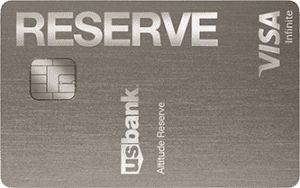
U.S. Bank Altitude® Reserve Visa Infinite® Card
U.S. Bank Altitude Reserve Visa Infinite Review
Reward details
Current Offer
Credit Rating
Annual Fee
0% Intro
APR
- Overview
- Travel Insurance Coverage
The U.S Bank Altitude Reserve Visa Infinite does have a steep annual fee, but this should be easily offset with its benefits. The card has a tiered reward structure weighted towards travel purchased via the Altitude Rewards Center.
However, you get a 50% points bonus when you redeem for travel. There are no point earning limits and you can earn up to $325 in travel credit per year. You can also enjoy airport lounge access with this card via a 12 month complimentary Priority Pass Select.
One potential downside with this card is that the travel insurance benefits are not as comprehensive as with some of the other cards on this list. For example, there is no baggage delay protection and the trip interruption/cancellation policy only provides coverage for common carrier tickets.
| Travel accident insurance | Up to $500,000 |
| Trip cancellation/interruption | Up to $2,000 per person, but only covers common carrier non refundable tickets |
| Trip delay reimbursement | Up to $500 per ticket if there is a delay of over six hours |
| Lost or damaged baggage | Up to $3,000 per trip or $2,000 per bag for residents of New York |
| Rental car | Primary Coverage for theft and physical damage, customary and reasonable towing. |
Delta SkyMiles® Reserve American Express
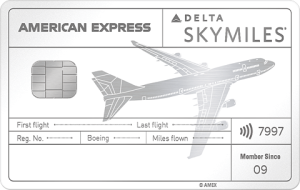
Delta SkyMiles® Reserve American Express
Reward details
Current Offer
125,000 Bonus Miles after you spend $6,000 in eligible purchases on your new Card in your first 6 months of Card Membership. Offer Ends 10/29/2025.
Credit Rating
Annual Fee
0% Intro
APR
- Overview
- Travel Insurance Coverage
The Delta SkyMiles Reserve is a co-branded Amex card that has a tiered reward structure weighted towards Delta purchases. This makes it a great option for regular Delta flyers.
The card has a premium annual fee, but this is offset by the premium card perks. These include a companion certificate each renewal year, first checked bag free when you fly Delta, reimbursement for TSA PreCheck or Global Entry application fees, priority boarding and complimentary Delta SkyClub and The Centurion Lounge when you are traveling on a Delta flight.
However, the travel insurance policies do have some limitations, so it is important to check the full terms and conditions before you commit to this card.
| Travel accident insurance | There is emergency medical transportation at no cost if it is deemed medically advisable or necessary by the Premium Global Assist Helpline. |
| Trip cancellation/interruption | Up to $10,000 per trip and $20,000 per card in a 12 month period |
| Trip delay reimbursement | Up to $500 per trip for delays of more than six hours, with a cap of two claims in any 12 month period |
| Lost or damaged baggage | Up to $1,250 for carry on and $500 for checked bags |
| Rental car | Secondary coverage for up to $75k for collision or theft damage if your rental is 30 days or less. |

The Platinum Card® from American Express
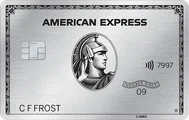
The Platinum Card® from American Express
Reward details
Current Offer
Credit Rating
Annual Fee
0% Intro
APR
- Overview
- Travel Insurance Coverage
The Platinum Card from American Express is the premium credit card that offers some superb benefits. In addition to the travel insurances detailed above, there is automatic Marriott Bonvoy Gold Elite Status, Hilton Honors Gold Status and Premium Car Rental Status.
While the annual fee is quite steep, this should be easy for regular travelers to offset with the various statement credit options. These include hotel and airline fee credit, Uber Cash, reimbursement for TSA PreCheck and Global Entry application fees and CLEAR credit.
The main competitor of the Platinum card is the Chase Reserve card, and both offer quite similar travel insurance coverage.
| Travel accident insurance | Up to $500,000 |
| Trip cancellation/interruption | Up to $10,000 per trip and $20,000 per card in a 12 month period |
| Trip delay reimbursement | Up to $500 per trip for delays of more than six hours, with a cap of two claims in any 12 month period |
| Lost or damaged baggage | Up to $3,000 per passenger |
| Rental car | Up to $75,000 |

Capital One Venture X Rewards
Reward details
Current Offer
Credit Rating
Annual Fee
0% Intro
APR
- Overview
- Travel Insurance Coverage
The Capital One Venture X Rewards has a tiered reward structure with up to 10 miles per dollar available.
The card does have a high annual fee, but there is up to $300 annual statement credit for bookings via Capital one Travel, an anniversary miles bonus, statement credit for TSA PreCheck or Global Entry fees and complimentary unlimited airport lounge access for you and up to two guests.
However, the travel insurance package is a little limited compared to some other cards. So, you’ll need to evaluate which is more important to you; comprehensive travel insurance or card perks.
| Travel accident insurance | Up to $250,000 |
| Trip cancellation/interruption | N/A |
| Trip delay reimbursement | N/A |
| Lost or damaged baggage | Up to $3,000 per passenger |
| Rental car | N/A |
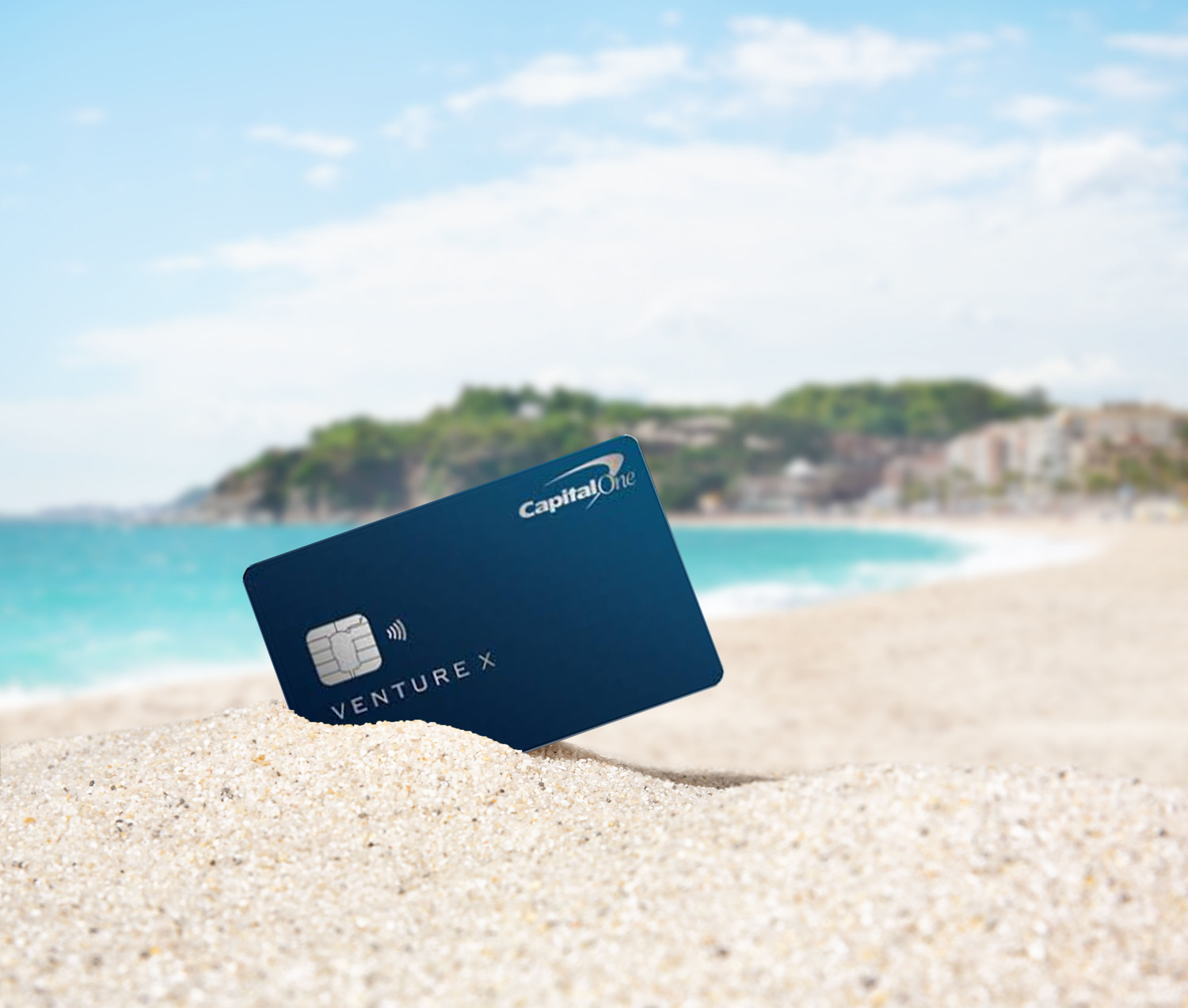
Bank of America® Premium Rewards® credit card
Reward details
Current Offer
Credit Rating
Annual Fee
0% Intro
APR
- Overview
- Travel Insurance Coverage
The Bank of America Premium Rewards card offers unlimited points for everyday purchases with a higher rewards rate for dining and travel purchases.
The card has a modest annual fee, but it offers some excellent benefits including reimbursement for Global Entry or TSA PreCheck application fees, statement credit for up to $100 for airline incidentals and purchase protections.
This card is a solid choice for less regular travelers who still want to enjoy a comprehensive suite of complimentary travel insurances.
| Travel accident insurance | Emergency evacuation available and coverage for eligible medical services |
| Trip cancellation/interruption | Up to $2,500 in non refundable passenger fares |
| Trip delay reimbursement | Up to $500 per ticket if your delay is over 12 hours |
| Lost or damaged baggage | Up to $100 per day in reimbursement for up to five days if your bags are delayed over six hours. There is also coverage if your bags are lost, stolen or misdirected by your common carrier. |
| Rental car | Coverage for theft or damage |
Table Of Content
Why Do You Need Travel Insurance?
While having travel insurance is not typically mandatory, it can provide significant financial reassurance should you encounter a problem when you’re away.
Even something as minor as the airline losing your bags can quickly add up to serious expenses. If your bags are delayed for 48 hours, you’ll need to purchase toiletries, replacement clothing and more for the first couple of days of your trip.
Now, when we get into more serious issues such as needing to cancel your trip due to unforeseen circumstances or having a medical issue while you’re away, the potential losses could run into thousands of dollars.
Depending on the coverage of your travel insurance, you’ll be reimbursed for these losses less any policy excess. However, travel insurance packages can become costly if you want to cover all possible eventualities.
This is where the best credit cards for travel insurance can help. There are many credit cards that offer travel insurance as a card perk, which can provide you with great reassurance for your future travel without breaking the bank.

Travel Insurance Types
As we touched on above, there are various types of travel insurance, but you may not need all of them for your travel plans. Therefore, it is important to understand what is covered by the different types of travel insurance.
-
Trip Delay Insurance
Trip delay insurance provides reimbursement if your travel plans are delayed for a covered reason. The typical covered reasons include airline maintenance, severe weather or civil unrest. Additionally, there is often a waiting period before your policy benefits kick in.
So, if your flight is delayed for 30 minutes, you’re unlikely to get any reimbursement for food, but if you’re delayed for 12 hours, the policy could cover lodging, food and even local transportation.
The specific timeframe for your benefits varies according to your policy, but it could be as little as three hours. Additionally, there is typically a daily limit which is generally up to $250 per traveler and a policy limit that can be anywhere from $500 to $2,000.
Just bear in mind that you will need to pay for your items and save your receipts, and then you can submit them to support your claim for reimbursement.
-
Trip Cancellation/Interruption Insurance
Trip cancellation or interruption insurance is designed to reimburse you for non refundable, prepaid travel expenses if you have an acceptable reason for cancellation.
For example, if there is a death in your immediate family, you’re ill, there are weather related issues or there is a sudden business conflict, your insurance will kick in to provide reimbursement up to the policy stated limits.
This type of coverage can be really helpful if you've paid more upfront than you're comfortable losing. For instance, if you’ve paid $100 for a weekend getaway, losing out on a refund for your accommodation might not be a big deal. But if you’ve spent $3,000 on a vacation tour, you’d definitely appreciate having trip cancellation insurance.
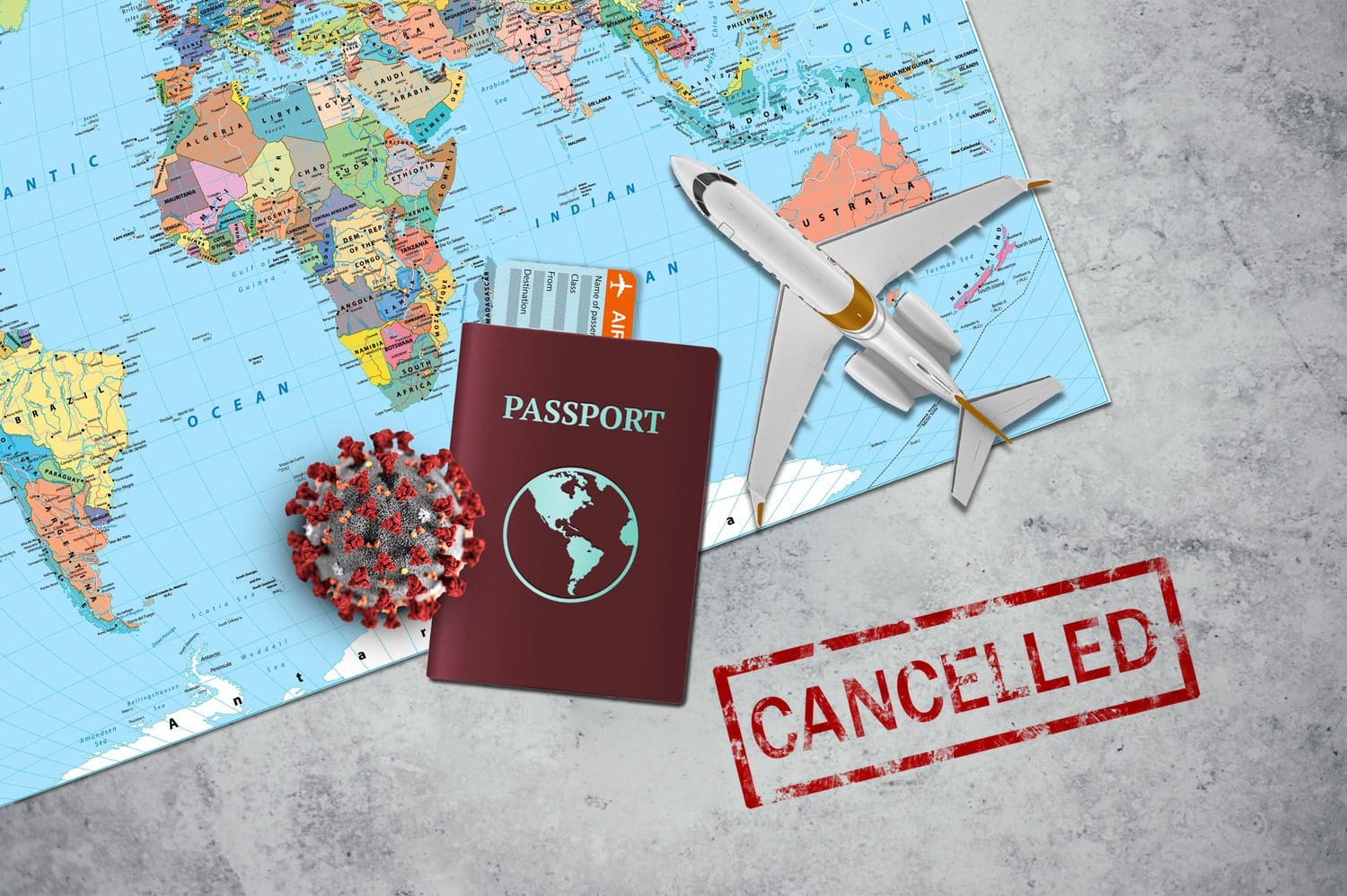
-
Lost Baggage Protection
This type of travel insurance covers the loss, damage, or theft of your luggage and personal items. While many airlines and travel companies will reimburse you if your baggage is lost due to their fault, there are usually limits on how much they’ll pay out. That’s why having lost baggage coverage can add an extra layer of security.
In some lost baggage policies, you’ll also have the option for reimbursement for essential items you need to purchase while you’re waiting to be reunited with your bags. There is typically a claim limit for this, but it usually provides sufficient coverage to replace toiletries and a change of clothing.
Again, you’ll need to purchase the items and retain your receipts to support your claim when you file it.
-
Travel Accident Insurance
This provides coverage for medical expenses related to an accident while you’re away from home. This can cover medical expenses that you incur, but it can also help you to locate healthcare facilities or assist you with foreign language services.
The coverage can vary greatly, depending on the provider and specific policy. Some policies cover basic medical expenses, while more comprehensive policies will cover airlift travel to medical facilities, medical evacuation or extended stays in a foreign hospital.
It is also important to check the limitations of your policy. If you’re performing an activity that is deemed risky such as some water sports or snowboarding, you may not be covered if you suffer an accident.
-
Rental Car Insurance
Rental car insurance is perhaps the most common type of travel insurance offered with credit cards, but it can be a nice perk if you tend to rent a vehicle when you travel. This insurance is typically additional coverage to supplement the car insurance that is included with your rental.
Generally, you will need to pay for your entire rental with your credit card and decline the rental counter additional coverage. Then if you’re involved in an accident or the vehicle is stolen, you won’t be out of pocket.

How to Choose a Credit Card for Travel Insurance
While we’ve highlighted our picks for the best credit cards for travel insurance, there are many good cards on the market. So, how do you choose the right one for you? Although this decision may seem a little daunting, there are some factors to consider which can help you make the right choice.
- The Annual Fee: You will need to weigh the cost of the annual fee with the value of the travel insurance benefits. If you’re a frequent traveler and will get the most use of the travel perks, it may be worthwhile to pay a premium annual fee, but if you only travel once a year, you may be better off with a card that has a modest or no annual fee.
- The Rewards: Cards tend to offer points, miles or cash back. In the case of travel credit cards, it is likely to be miles or points. So, you will need to consider which type of rewards you are most comfortable with. Again, miles can be a good choice if you frequently fly, but if you prefer greater flexibility, points are a better option.
- Other Benefits: The cost of the annual fee can also be weighed against the other card benefits. Many of the cards offering travel insurance tend to offer travel perks, but there are exceptions. If you travel regularly, you will likely get the most use from airport lounge access, free checked bags and priority boarding.
- Your Credit: Finally, you will need to check your latest credit score to see which cards are most applicable to your circumstances. If you have less than ideal credit, you may need to set your expectations lower and go for a more modest card, building up towards a top of the line card in the future.
What are the Limitations of Travel Insurance Cards?
The main limitation of travel insurance cards is that cards with comprehensive insurance packages tend to have benefits that are almost exclusively travel related. This means that if you’re not a regular or frequent traveler, you won’t be able to leverage the full potential of the card.
However, the other obvious limitation is that the travel insurance typically only kicks in if you purchase your fares and stays with your card. This means that if you get higher rewards purchasing travel with another card, you won’t have the coverage from the card. So, you’ll need to assess which has more value to you, the travel insurance or the higher rewards.
As with any insurance product, it is also important that you read and understand all the terms and conditions for your policy. In most cases, there will be limitations or restrictions on your coverage.
For example, there may be a cap on the amount of cover or your policy may only cover common carrier fares rather than your entire vacation. Additionally, you will need to have a valid reason for the coverage to kick in.
FAQs
Is credit card travel insurance enough?
This depends on the coverage offered with a specific card. You will need to read the terms and conditions carefully to assess whether you need to purchase additional travel insurance.
Does every travel insurance card include rental car coverage?
While rental car coverage is quite common, it is not available with every travel insurance card. So, check the card information carefully if this is a coverage that is important to you.
How do I know if my credit card provides travel insurance?
You should have policy details included in your welcome package when you receive your card, but if you don’t have this paperwork on hand, you can call your credit card issuer and a representative can guide you through your coverage.
Do Chase credit cards cover travel insurance?
Yes, in fact, many of our picks for the best credit cards for travel insurance are Chase or Chase co-branded cards.
Do Amex credit cards cover travel insurance?
Yes, there are American Express cards that provide travel insurance including the Platinum Card and Delta SkyMiles Reserve.
Do Citi credit cards cover travel insurance?
While there are some Citi cards that have travel benefits, it is difficult to find one offering travel insurance.
Do Bank of America credit cards cover travel insurance?
Yes, there are Bank of America credit cards that provide travel insurance.
Do Capital One credit cards cover travel insurance?
Yes, there are Capital One cards offering travel insurance including the Venture X Rewards we discussed in this article.
How do I file a travel insurance claim?
Your card issuer will provide you with a helpline that you can use to file a claim. This may include an overseas number, so you can start your claim or seek help as soon as you run into an issue.
How We Picked the Best Travel Insurance Credit Cards
When determining the best travel insurance credit cards, we conducted a comprehensive evaluation based on several key factors.
Firstly, we analyzed the extent of travel insurance coverage offered by each credit card, considering factors such as trip cancellation and interruption insurance, baggage loss or delay coverage, and emergency medical assistance.
We also assessed the card's annual fee and the value provided in relation to the coverage offered. Additionally, we took into account other features and benefits, such as rewards programs, travel perks, and ease of filing claims.
Review Travel Credit Cards
- Eligibility and Benefit level varies by Card. Terms, Conditions, and Limitations Apply. Please visit americanexpress.com/benefitsguide for more details. Underwritten by Amex Assurance Company.


